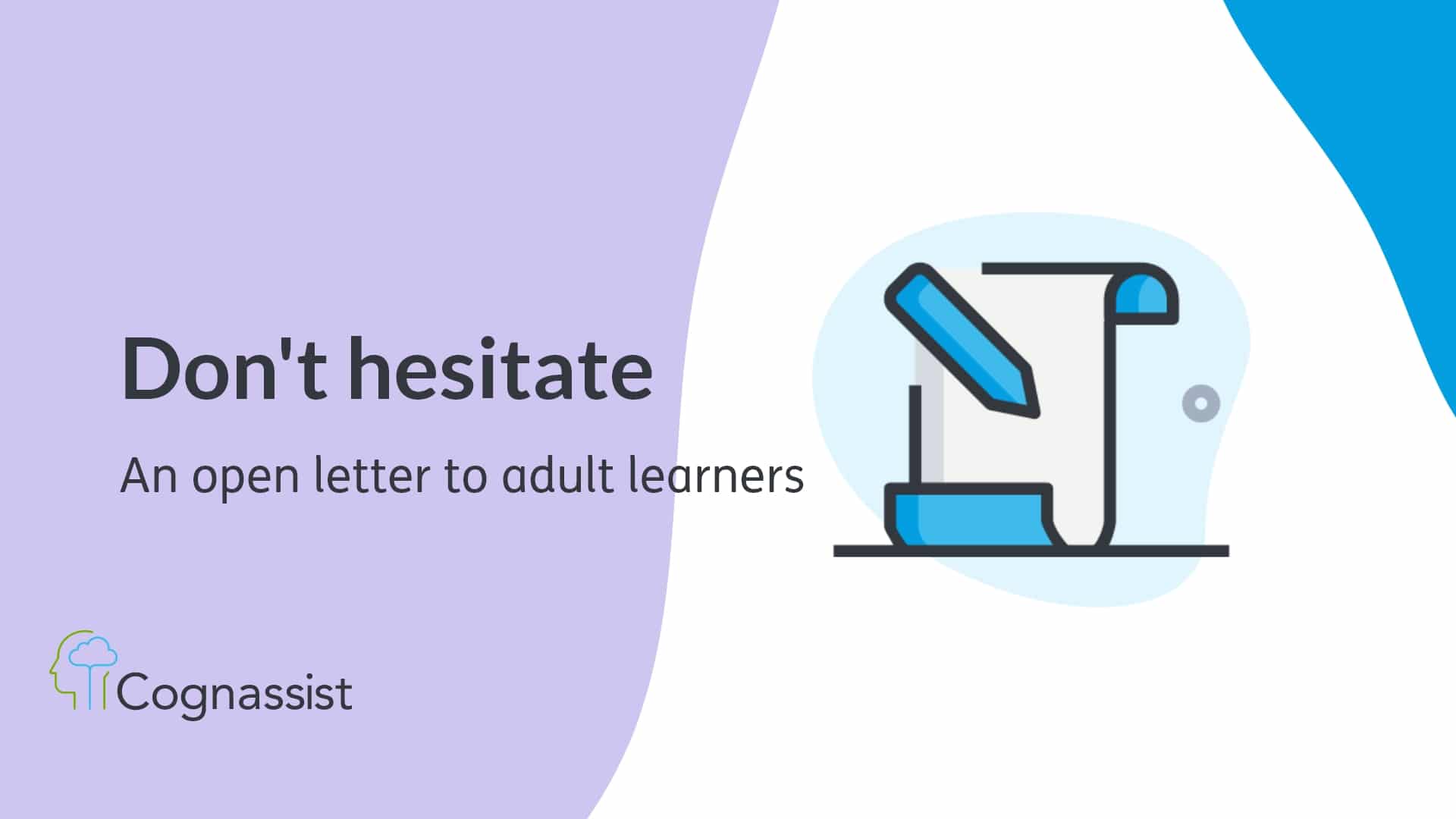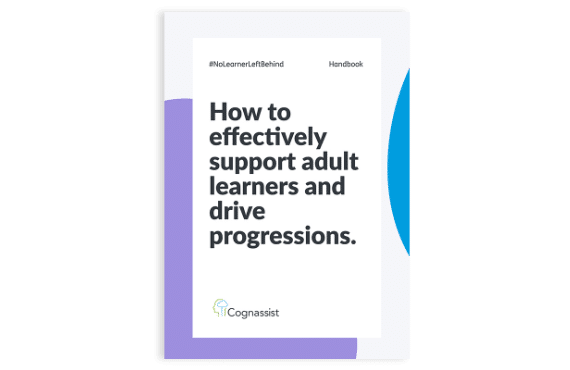
Don’t hesitate: an open letter
Lifelong learning can improve your mental health, make you live longer and combat cognitive ageing and dementia.
There is never a point in life where learning becomes irrelevant or impossible.
I want to talk to you about how I know this to be true.
The proof lies in our understanding of the human brain.
It makes up everything we are, but we don’t often think about what’s actually going on up there.
Your brain is more powerful than any supercomputer.
It is the most complex structure in the known universe. This structure of synaptic connections is completely unique to you and it changes every day of your life.
So it’s no surprise that we all think and learn differently.
I’m diagnosed with dyslexia.
The neuropsychologist who assessed me really helped to put this into context. Dyslexia is just a label to describe the specific ways in which I process information.
However, I think about other labels people acquire throughout their experiences in education, labels like ‘bad’, ‘dumb’, ‘underachiever’ – the list goes on and on – and I cannot downplay how serious and harmful they are.
These labels aren’t based on any scientific evidence.
No neuropsychologist would ever make this diagnosis.
Yet we chose to believe such things, carrying these labels into adulthood.
Think about what that does to a person.
The opportunities they deny themselves because they don’t think they can succeed or are welcome back in education.
If this feels familiar to you, know this: you can keep learning, and it’s crucial that we all do.
The UK, and countries around the world, are facing an economic downturn and the likelihood of mass unemployment.
The Government is receiving multiple proposals and recommendations from industry leaders on how to support a levelling up agenda.
They know how important education will be to our recovery.
Your learning matters, and now, especially, is the time to think about what you’re capable of and maybe challenge yourself to try something new.
If you feel like you don’t fit into mainstream education, that’s good. We need more people like you, people who think differently.
Businesses require diversity and they should aim for it.
Having a team that have different abilities and perspectives makes companies more creative and flexible.
Our education system also needs to reflect this and educators are working hard to make learning more adaptable and inclusive.
I’m proud to be involved in this work.
I want to increase educators’ understanding of learners so they can build more tailored learning environments.
We are here to support you in your learning, whether it’s a four-year programme or a three-month course.
And what we all do now sets a precedent.
Young learners, who are now facing the longest break in their formative education, will also need a flexible learning environment when they return.
We don’t yet know what the cognitive impact will be from this break. However, we do know it will not be fairly distributed, with SEND and economic factors having a significant effect.
The Educational Technology (EdTech) sector is providing new ways to make learning accessible and support learning online for all ages and abilities.
It will be the role of this sector, the one I work in, to ease the transition back into learning and help to create a blended approach. Supporting staff and ensuring all learners like yourself can achieve their learning goals post-Covid.
Evidence shows that “education is associated with higher levels of resilience over the longer term” after a natural disaster (Frankenberg et al. 2013). This research is significant because we are facing a similar large scale disruption to normal life.
How you chose to respond makes a difference. Taking the time to return to learning now will help to reduce the impact of this pandemic.
However, that’s not the only evidence in favour of continued learning throughout life:
- It can make you live longer (Luy et al. 2019)
- It helps to combat cognitive ageing and diseases like Dementia (Tennstedt and Unverzagt 2013)
- It can increase your mental health (Hammond et al. 2004)
Retraining and upskilling has never been more attainable and never more crucial.
We’re here to break down the barriers to learning.
Paving the way for you to succeed, no matter your age or circumstances.
It’s never too late to learn.
Chris Quickfall
CEO
Download our free handbook
What’s included?
- How to understand the different needs of your adult learners.
- Best practice support for adult learners.
- How to accurately demonstrate intent, implementation and impact to Ofsted.
- How to build a learning journey with high impact support.
- Best practices on AEB funding and evidencing.

